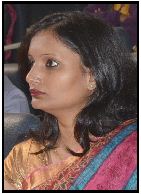|
Abstract
The article traces the evolution of nursing as a globally recognized profession from an intuitive art in the homes. The historical development of nursing by Egyptians, Greeks, Romans, Chinese, Hindus, Christians, and Arabs is discussed. Nursing in the modern era, with its low and high points, and the contribution of Florence Nightingale as the turning point in the development and recognition of nursing are also examined in the article. The professional characteristics of nursing, the personal qualities needed for a professional nurse, code of ethics, and professional accountability are the other key components of the article. Abstract
In organisational life, introspecting about ourselves and alignment with the organisation plays a vital role in the success of the individuals across all levels. This would be done by working on relationship building and developing the mental ability of configuring with people. We need to also understand organisation needs, expectations and then start configuring them with that of the Self. It is important to keep in mind that this process of alignment is dynamic and a continuous process. Abstract:
Children constitute 39 percent of the total population and majority of the children (72% of the total child population) are in rural parts of the country who are living in an unequal condition compared to their urban brethren. Due to ignorance, lack of facilities, and omission by the duty bearers most of the rights of the rural children are violated. In the best interest of children several meaningful and powerful statutes and systems are created, but fail to reach the poor and rural children resulting in their continued exploitation. There is an urgent need for the concerned statutory body like the District Juvenile Justice System to take note of the real condition of rural children with facts and figures and direct the concerned duty bearers to deliver expected services. If we ignore the rural children today, all the good intended programmes, projects and statutes fail our young citizens. Abstract
The ageing scenario in India has transformed in the recent decades due to the observed demographic trends among the older population and rapid social change that has led to the decline in informal supports for older persons within the family, which may be adversely affecting their well-being. In this context, Living Arrangements (LAs) are identified as a basic determinant and an indicator of the care and nature of informal supports available to the older persons within the family, and therefore of their Quality of Life (QoL). In the current study, while understanding the family relations that are part of LAs of the older persons, the findings revealed who the hardest and easiest person to get along with them were, and that respondents’ perception about the level of interest shown by their family members towards their well-being varied according to their current LAs and seemed to impact their QoL and its related factors such as loneliness and adaptation to old age. Abstract
The author traces events and circumstances in his career and pursuits that impacted his belief system. He recalls how he has been inconsistent on approach to life, while standing firm on values. Such shifts in beliefs that he held from time to time helped in his evolving as the person he is now. The journey continues with no guarantee that he will arrive at a point where consistency replaces inconsistency, his hallmark. The author claims that he has a brand new innings to play, having lofty vision and hazy plans! Abstract
The article explains the concept of health, disease and illness. The WHO definition of health is very relevant, though there is some criticism that it is too broad, according to the author. The article explains the spectrum of health, determinants of health, health systems, and levels of health services. Evolution of hospital as a social institution and hospital as a social system are two major sections of the article. Dr. K. Prabakar CEO, Apollo Knowledge, Chennai Abstract
The present research paper attempts to examine the programme carried out by the four selected NGOs for the political empowerment of dalits in Gujarat. Each NGO’s one major programme directed towards the political empowerment of dalits have been identified and analysed to find out their suitability for the political empowerment and leadership development of Dalits. The paper describes and analyses programme of NGOs, keeping in view political empowerment and leadership aspects. The researcher has considered ten categories such as basic information of programme; process of planning for programme; process of resource arrangement and utilization; programme execution process; nature of local participation in programme; Dalit empowerment aspects in programmme; decision making process; monitoring; evaluation; sustainability of programme, while analyzing, interpreting and discussing about the contribution of programme of each NGO to understand the political empowerment process of dalits. It also highlights the process of capacity building and leadership development among dalits and tries to understand the extent of NGO’s contribution in the political empowerment of dalits. Key Words: Leadership, NGOs, Political, Empowerment, Programme, Dalits Abstract
The purpose of this article is to provide a general summary of the CSR perception and operation in the Indian context. This article focuses in exploring the understanding of the various CSR operations in India. The article reviews the current operational challenges of corporates and in particular after the CSR bill implementation process. The article also focuses on the key stakeholders within the organization responsible for CSR implementation, role clarity and social development understanding. Need-based community issues and duplication of projects are also explored in detail. The responsibilities of industry organizations like CII, NASSCOM, FICCI & IICA are also highlighted in advocating for CSR. NGO partnership issues were also explored along with the government stakeholders’ participation in the social development issue. This article is purely based on the secondary data and tries to focus on the findings and reviewing of the issues and challenges faced by all the stakeholders involved in CSR. Ramkumar Sethupathy CSR Consultant, UNICEF
Abstract
What makes Corporate Social Responsibility a hand in hand proposition with social development? Is social vision a derivative of business vision or is it otherwise? WIPRO is an excellent example of how there could be a strong connection, interdependence and contribution in both business and social responsibility without compromising on both. This article traces the history, orientation, and attitude that supports the CSR sustainability. It also gives a peek into the nature of programs run by WIPRO that makes it a nation building partner than merely a supporter of social development. The article brings out the truth that unless there is a personal orientation towards social responsibility a larger organizational interest cannot be generated. Premji’s life and vision makes an excellent case study to articulate on these foundational dimensions of CSR. Dr. Kalpana Sampath Director of Arpitha Associates Pvt Ltd.
Abstract
Corporate Social Responsibility (CSR) in India as well as all over the world is a shift from industrial philanthropy of the past into strategic set of programmes to address the concerns of the stakeholders, besides the stockholders, what is commonly referred to as the “triple bottom line”—people, planet, and profits. Manifestations of grave wealth inequalities in the world as well as in India, widespread poverty, destruction of the environment, frequent natural disasters because of climate change, and wars, terrorism, and political conflicts have discredited the capitalist mode of wealth accumulation. Societies based on unlimited wealth accumulation and mass consumption are unsustainable. CSR, promoted by the United Nations Global Compact, is a feeble effort to counteract it. Revolutionary changes that go beyond CSR, and move our society toward the Gandhian vision of Gram Swaraj—self-governing, self-sustaining, decentralized and democratic village eco-communities, assuring good quality of life and wellbeing, are vital. This alone will save humankind from an impending apocalyptic sixth extinction predicted by climate scientists. Dr. Henry J D’Souza Professor, Grace Abbott School of Social Work, University of Nebraska at Omaha, USA Abstract
The article examines the different explanations of the concept of CSR, and the strengths and weaknesses of CSR. It discusses the shift from CSR to CSV (Creating Shared Value) by enlightened companies across the globe. CSR in India has evolved from merchant philanthropy to social development oriented activities by companies. But CSR has always been discretionary in nature by the corporate organizations. Some companies have been outstanding in the CSR domain, while many companies involved themselves in CSR activities only for image building. The new Companies Act of 2013 made CSR mandatory for a class of companies. This article also discusses the CSR legislation of the government of India and its implications. Key Words: Corporate social responsibility, creating shared value, employee volunteering, HR practices. K.N. Ajith Vice-President (Human Resources), Mytrah Energy (India) Limited, Hyderabad-500032 |
Categories
All
Social Work Learning Academy50,000 HR PROFESSIONALS ARE CONNECTED THROUGH OUR NIRATHANKA HR GROUPS.
YOU CAN ALSO JOIN AND PARTICIPATE IN OUR GROUP DISCUSSIONS. MHR LEARNING ACADEMYGet it on Google Play store
|
SITE MAP
SiteTRAININGJOB |
HR SERVICESOTHER SERVICESnIRATHANKA CITIZENS CONNECT |
NIRATHANKAPOSHOUR OTHER WEBSITESSubscribe |
MHR LEARNING ACADEMY
50,000 HR AND SOCIAL WORK PROFESSIONALS ARE CONNECTED THROUGH OUR NIRATHANKA HR GROUPS.
YOU CAN ALSO JOIN AND PARTICIPATE IN OUR GROUP DISCUSSIONS.
YOU CAN ALSO JOIN AND PARTICIPATE IN OUR GROUP DISCUSSIONS.
|
|
















 RSS Feed
RSS Feed





